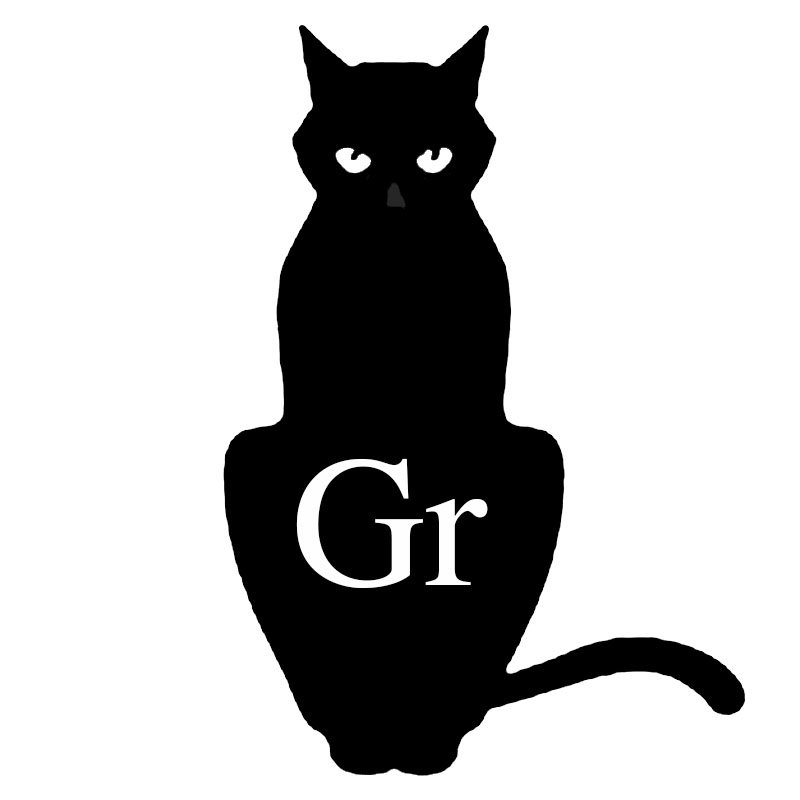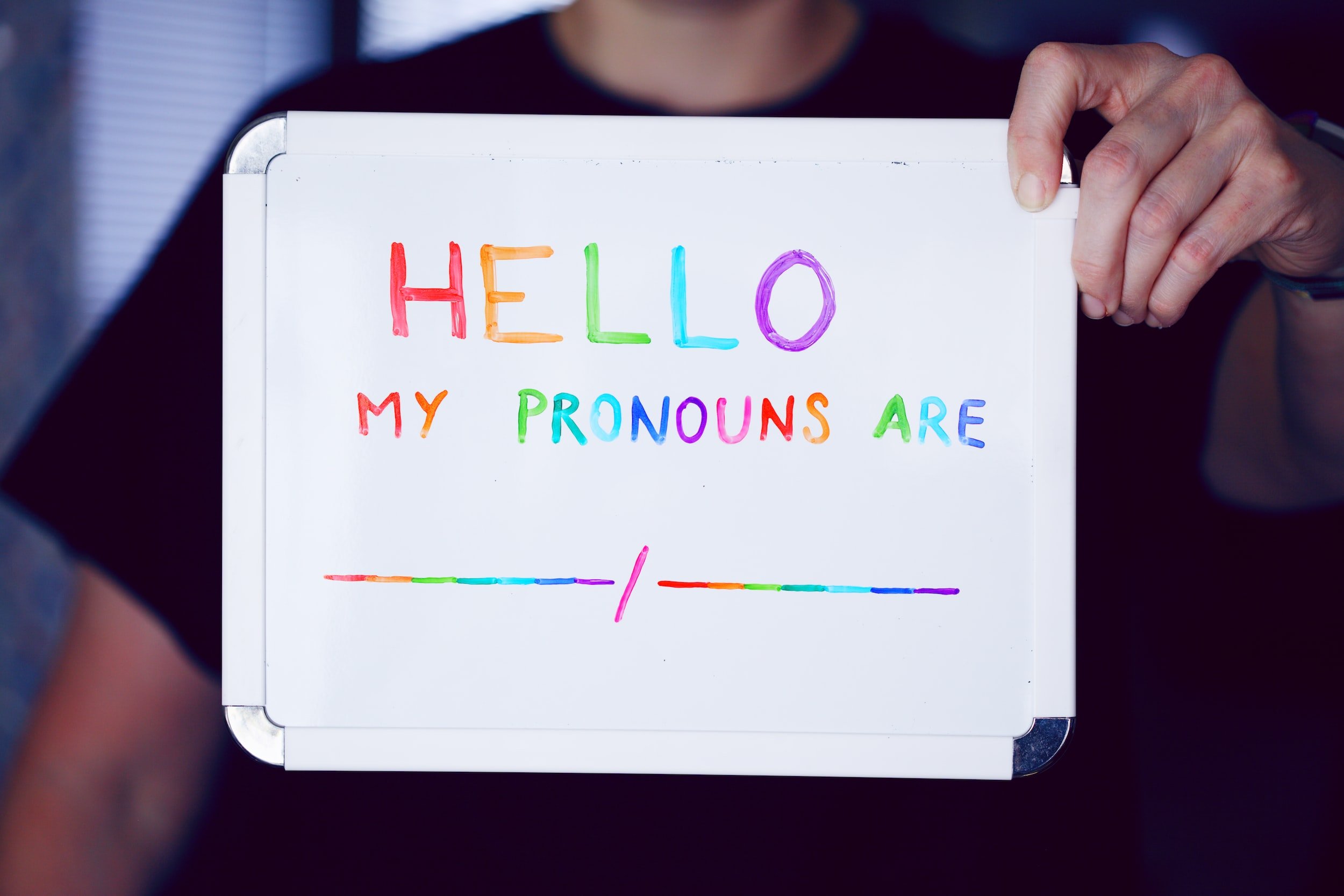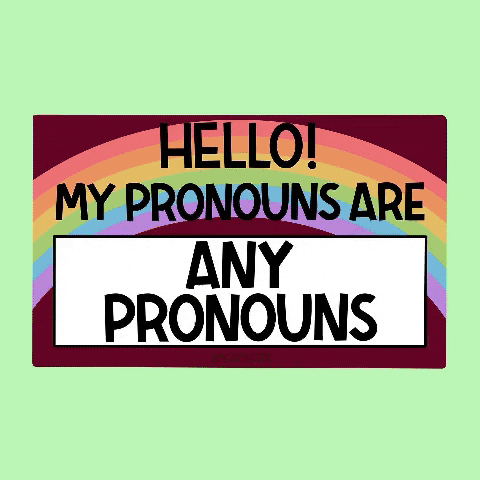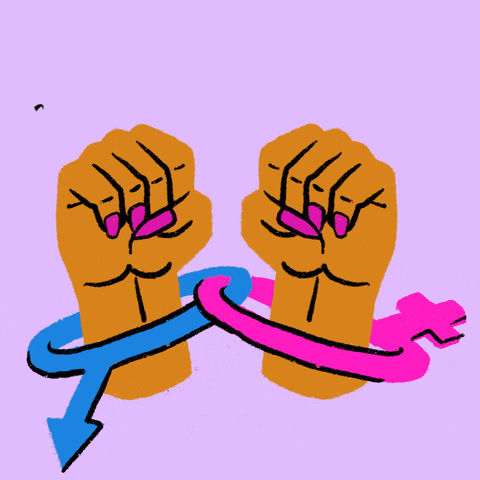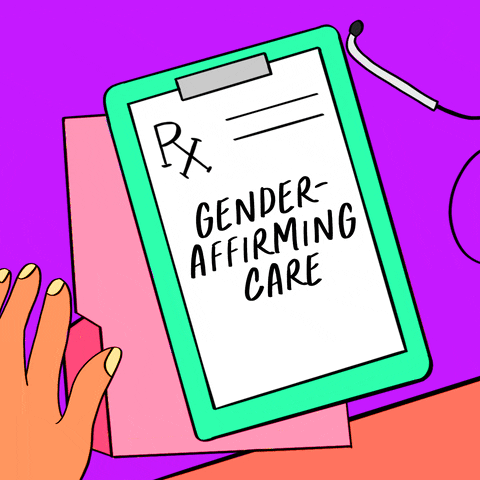Pronoun Myths and Misconceptions
Written by Tam Nguyen, edited by Eli Owens.
Now in the 21st century, the conversation around personal pronouns is more present than ever. Pronouns have become highly politicized across the nation, and with all of the discussion and information on the internet, it’s easy for misconceptions and falsehoods to be spread. We feel it’s important to. Let’s clear up some of the most prevalent common myths about pronouns. As you read, we encourage you to keep an open mind and challenge yourself to think critically each of these points. Ultimately, we each have a responsibility to seek truth and ask ourselves where our own biases may be limiting our thoughts.
#1: they/them pronouns are grammatically incorrect
Some people will claim that they/them pronouns aren’t valid for singular use because they’re plural pronouns. But them/they pronouns can and have been used in singular in the English language for ages. Here are two common use cases for they/them in singular form:
We use they/them when someone’s gender isn’t specified.
For example: Taylor has a black cat. The cat belongs to them.
Taylor’s gender hasn’t been specified, so ‘them’ can be used to refer to Taylor.
We use they/them when referring to indefinites
Indefinite pronouns are singular pronouns that refer to unspecified people.
For example: Each cat owner should remember to feed their cat.
Each cat owner is singular. However, each cat owner isn’t specified, so ‘their’ is used to refer to each individual person.
Clearly, they/them can be and is often used in singular form as well as plural, so if you or someone you know has used this argument against singular they/them pronouns, consider if there may be some other reasons behind the resistance.
#2: pronouns are assigned at birth
The misconception of pronouns being assigned at birth comes from the confusion between sex and gender being seen as binary based on gender roles and traits rather than on spectrums. Gender is a social construct. Gender is a personal and a fluid social experience. Biological sex has been forced on people at birth based on these binary gender roles and traits that have been associated with cis men and women in our society.
Your pronouns are associated with your gender identity, and furthermore, biological sex is actually a spectrum that goes beyond the binary construct. Therefore, you can choose to change your pronouns however you feel fits! Ultimately, how you choose to identify is your choice.
#3: different gender pronouns are “too new” and have never existed before
Though different gender pronouns are definitely more commonly discussed nowadays, they have existed for a long time. Many different cultures have recognized multiple genders for centuries. Some examples include two-spiritsin Indigenous North American tribes, Balkas in the Philippines, Muxes in Mexico, and Toms in Thailand, just to name a few (just check out this cool read on ancient / medieval trans people here). The acceptance of these different genders seemed to have decreased after the influence of Western colonization. We urge you to do more research on gender identity in other cultures, as this is a rife and wonderful subject that can broaden our cultural horizons!
#4: gender and pronouns are too difficult to understand, especially for children
Binary gender roles are unconsciously taught to us as we grow up. However, as long as there’s willingness and dedication, anything can be learned or unlearned! Society advances and changes all the time, as does our language. If we continue having conversations about gender inclusivity, pronouns and gender will become easier for everyone to understand. Regarding children, many have argued that it’s actually easier for them to learn about gender and pronouns because kids don’t have to unlearn a lifetime of binary gender roles. As with any new information that challenges our preconceptions and biases, Gender and pronouns are only difficult to understand if you aren’t open to learning. .
#5. pronouns are only relevant for non-cis people
Cisgender people are so rarely misgendered that it’s easy for them to take pronouns for granted. If you yourself are cisgender, however, consider how it might feel if people consistently referred to you by a different gender pronoun on a daily basis, even after correction. If you identify as a woman who uses she/her pronouns, imagine walking into a store and being greeted by a cashier who said “Hello sir, how may I help you?” If you’re a man who uses he/him pronouns, imagine being at a family event and hearing someone refer to you by saying “oh she’s busy at the moment.”
If at first blush, this sounds so absurd you simply laugh it off, sit with it a little longer and imagine if this was your reality.
Would you feel frustrated? Unheard or unseen? Disrespected? Remember that this is the common daily experience for many trans and nonbinary people.
If you’d like to help normalize not assuming people’s pronouns to help combat this issue, consider sharing your pronouns when introducing yourself in social settings. Though it might not feel super necessary for cisgender people to share their pronouns, it's a service to non-cis people as it removes that element of assumption we have all been trained to take for granted (you can learn more about this pronoun etiquette here)! When Everyone shares their pronouns, it creates an environment where non-cis people feel comfortable in their gender identity and expression.
From a practical standpoint, it also helps to prevent awkward situations of people trying to assume or guess pronouns! Finally, gender is fluid and over time you might identify yourself with a different gender, so pronouns will always be relevant to everyone as they go through their individual journeys.
Hopefully, this has cleared up any confusion or learned misconceptions you might have had about pronouns. . The most important takeaways: Gender is a very personal experience and the language we use matters. As society shifts and evolves, so does our language, and being open to learning new information helps us grow as individuals and in community.
Like what you heard? Learn more about Grimalkin and help support our work to assist and uplift Queer, Trans, BIPOC, and Disabled artists!

